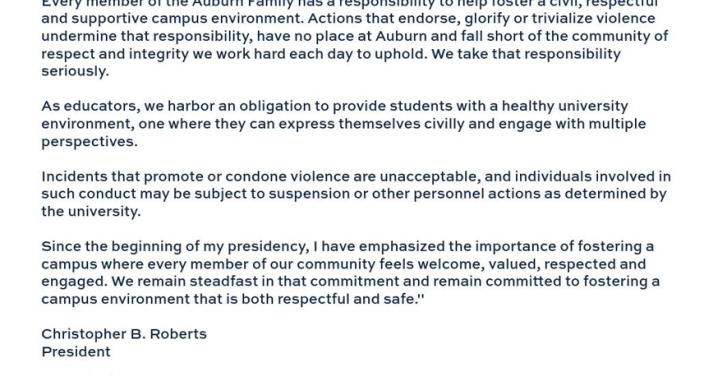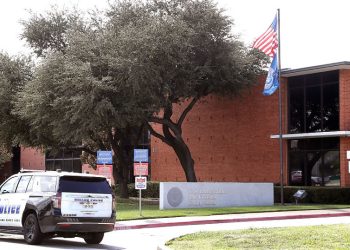ALABAMA (WHNT) — The murder of conservative commentator Charlie Kirk has sparked mourning across the country. Subsequently, a former Auburn University educator saw her life change dramatically following a negative post about Kirk’s death.
Candice Hale is suing Auburn University and the University of Alabama, where she taught online courses, claiming her First Amendment rights were violated. The lawsuit says Hale’s termination occurred “without any formal investigation, hearing or opportunity to respond.”
“I think there’s a difference between hate speech and threatening someone, and having an opinion,” Hale said.
Hale posted a statement on Facebook after Kirk’s death, using language such as “I won’t mourn the bad guys.” She said the social media post led both universities to terminate her position and believed she was not the only one facing such scrutiny.
“I think it affects other educators and people in general who feel like they can’t say anything if it doesn’t fit the status quo of who’s in power,” Hale said.
Auburn University President Christopher Roberts, who is named in one of the lawsuits, posted a statement on Facebook in September announcing the firing of employees over such posts for violating the university’s code of conduct.
The lawsuit asked the question: Does a person’s personal social media reflect their ability to do their job fairly?
“This is an issue that I think is still evolving in the United States,” said Eric Artrip, an attorney with Mastando & Artrip. “Where does the personal and professional line exist, and is it blurred to the point that everything we post on social media can then be attributed to our employer?”
Artrip said private employers can enforce whatever rules they see fit, but public institutions, such as universities, cannot infringe on an employee’s rights under the First Amendment. He added that it ultimately comes down to whether or not courts consider the message to be protected speech classified as a public concern, or unprotected speech, such as fighting speech.
The question remains: To what extent does an employee’s social media activity impact their ability to adequately do their job? Artrip said the courts are working to define an answer to this problem.
“That’s the line that needs to be drawn here. Certainly, the right to free speech is not unlimited,” Artrip said. “The question is: Is this a matter of public concern that the First Amendment protects, or is it hate speech and other things like that that the First Amendment doesn’t protect?”
The University of Alabama told News 19’s Peyton Newman that it is aware of the lawsuit and does not comment on ongoing litigation. Auburn University did not respond to a request for comment.









